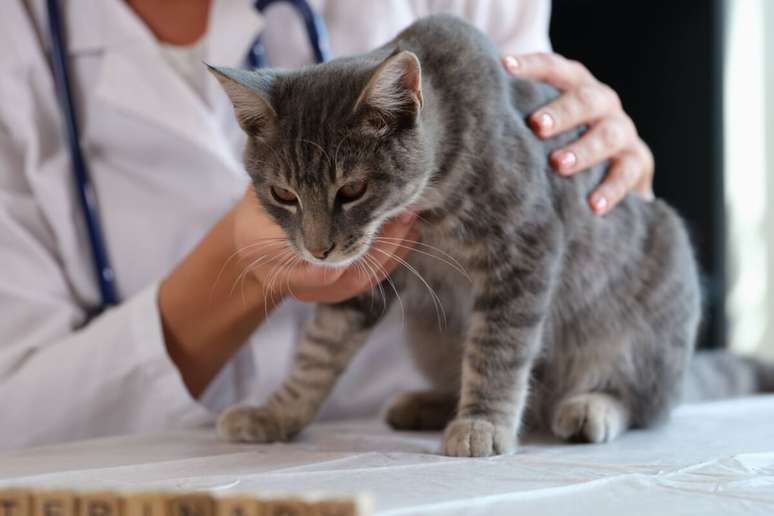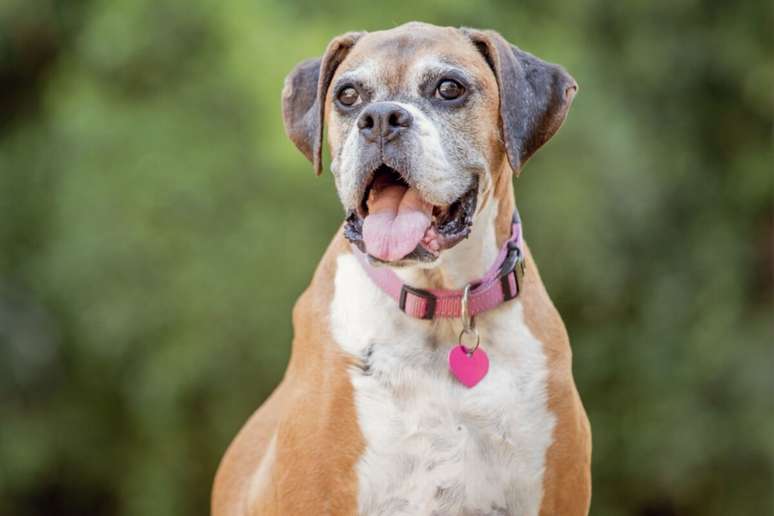Tutors ATTENTION guarantees greater health, comfort and quality of life for animals in the elderly
The “Purple February” campaign was created specifically to talk about diseases such as Alzheimer’s and leukemia, common in humans. However, the period also attracts attention to the health of pets The elderly, especially for neurodegenerative diseases, such as canine cognitive dysfunction.
The action aims to sensitize people on the specific needs of elderly animals, promoting a better quality of life and longevity. Like humans, they also face challenges as they age, and it is essential that the tutors are ready to offer the necessary support.
Cognitive dysfunction syndrome
According to the coordinator of the Veterinary Medicine Course at the Anhanguera College, Prof. Dr. Renato Silvano Pulz, cognitive dysfunction syndrome, better known as “Alzheimer” in pets, mainly affects the population of elderly dogs and cats. In some cases, it is possible to notice his signs from the age of six.
“The problem […] reaches the central nervous system, which affects the Brain of elderly animalscausing a series of behavioral changes, such as difficulty in learning, interaction and response to stimuli. Studies also show that the disorder can affect the dog’s memory, “he explains.
Signs of alert and treatment
It is important to be aware of the signs of canine cognitive dysfunction. For this, Prof. Dr. Renato Silvano Pulz stresses that the tutors should observe the dog’s behavior. If there is a change of sleep, pee and poop in unusual places, change in behavior, forgetting the commands learned and reduced the orientation, causing the loss of the animal through the house, it is indicated that it is looking for a veterinarian.
“It’s a illness This has no care. However, there are treatments to slow down the syndrome. The treatment provides adjustments in food, the incorporation of specific and antioxidant vitamins, as well as the use of drugs for canine cognitive dysfunction, which promote improvements in the quality of the life of the animal “, explains the professional.
Care with elderly animals
Below, Prof. Dr. Renato Silvano Pulz lists some suggestions for the care of elderly pets. Check!
1.
The elderly diet for pets should be adapted to meet their new nutritional needs. Specific foods for old age help to maintain joint health, to control weight and provide essential nutrients.

2. Regular exams
Regular veterinary consultations are essential to monitor the health of pets elderly. Blood tests, check Dental and physical assessments help to detect the problem of early health.
3. Moderate exercises
Keep a routine moderate exercises It is important for the physical and mental health of elderly animals. Light excursions and age jokes help to maintain mobility and avoid weight gain.
4. Comfort and accessibility
It is essential to provide a comfortable and accessible environment. Orthopedic beds, ramps and surfaces do not slip help prevent injuries and provide a safe space for elderly animals.
5. Hydration
Hydration is essential for the health of elderly pets. Make sure they always have easy access to fresh and clean water.
6. Attention to the signs of pain
You Elderly pets They can suffer from painful conditions such as arthritis. Pay attention to the signs of discomfort, such as difficulty in getting up, reluctant to move or behavioral changes and consult a veterinarian for proper pain management.
7. Mental stimulation
Mental stimulation is as important as physics. Interactive toys, smell of smell and mental calle activities help to maintain elderly animals mentally active and happy.
By Nicholas Montini Pereira
Source: Terra
Ben Stock is a lifestyle journalist and author at Gossipify. He writes about topics such as health, wellness, travel, food and home decor. He provides practical advice and inspiration to improve well-being, keeps readers up to date with latest lifestyle news and trends, known for his engaging writing style, in-depth analysis and unique perspectives.








